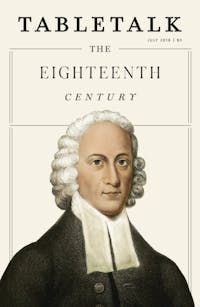
Request your free, three-month trial to Tabletalk magazine. You’ll receive the print issue monthly and gain immediate digital access to decades of archives. This trial is risk-free. No credit card required.
Try Tabletalk NowAlready receive Tabletalk magazine every month?
Verify your email address to gain unlimited access.
David Brainerd (1718–47) lived on mission for God. Brainerd traveled thousands of miles on horseback, evangelizing Native Americans and proclaiming the gospel in the American Colonies. His chief aim in life was to proclaim the good news of Jesus Christ, writing, “I cared not where or how I lived, or what hardships I went through, so I could but gain souls to Christ.” Brainerd went home to be with the Lord at a young age, but his legacy has lived on. Moreover, Brainerd was highly esteemed by many of his eighteenth-century co-laborers. Jonathan Edwards (1703–58), the renowned theologian during the First Great Awakening, devoted himself to making Brainerd’s story known in order to encourage and to set an example for the church to live on mission for God.
Brainerd was a shining light in the eighteenth century, but he did not stand alone. This was the era of the First Great Awakening in both America and Britain, and God raised up many preachers to reach the unconverted with the good news of Jesus Christ. Protestant missions, which had been ongoing since the sixteenth-century Reformation, enjoyed a new focus, and many men and women heeded Jesus’ call to go to the ends of the earth and make disciples of the nations. Today, the church continues to benefit from the fruit of those who labored during the eighteenth century to make Christ known among all peoples. Our preaching, hymnody, and piety in the twenty-first century have been significantly shaped by the work of faithful eighteenth-century Christians.
We study church history not merely to learn from and remember the past but to help us wisely serve and glorify God now and for the future. We look to the great figures of eras gone by in order to learn from their successes and failures. We examine their lives that we might be encouraged to imitate them insofar as they followed Christ (1 Cor. 11:1). For until Christ returns, we must be concerned to see the conversion and discipleship of our neighbors and the nations. As we labor toward this end, we must rest in the glorious truth that God is sovereignly fulfilling His purposes as He sovereignly works in and through us as His instruments. As some have said, history is a story written by the finger of God, and that story is centered around the history of the cross of Christ Jesus, who is coming again at the culmination of His mission, when the Great Commission has been fulfilled and all the elect have been saved from every tribe, tongue, and nation.
